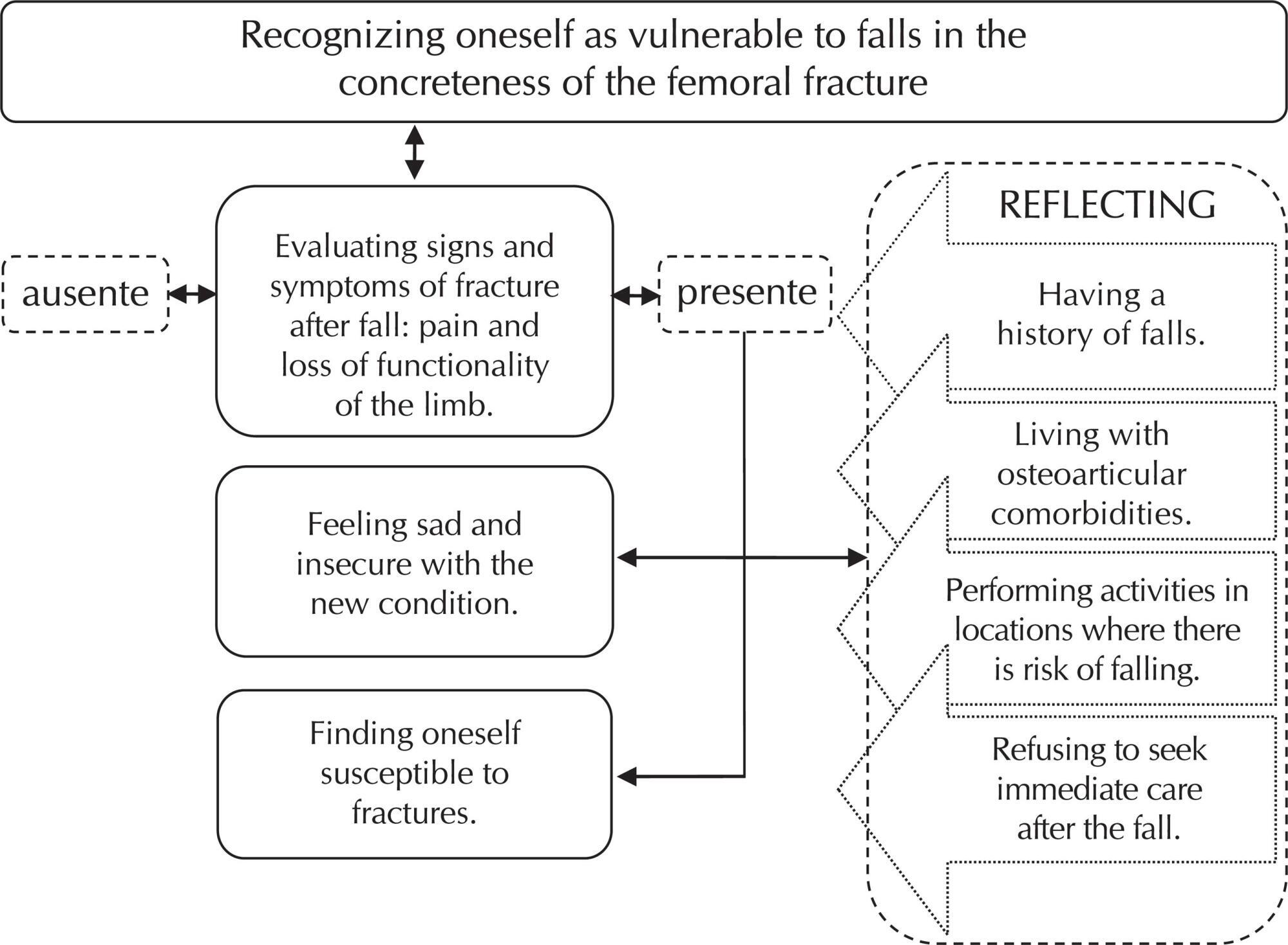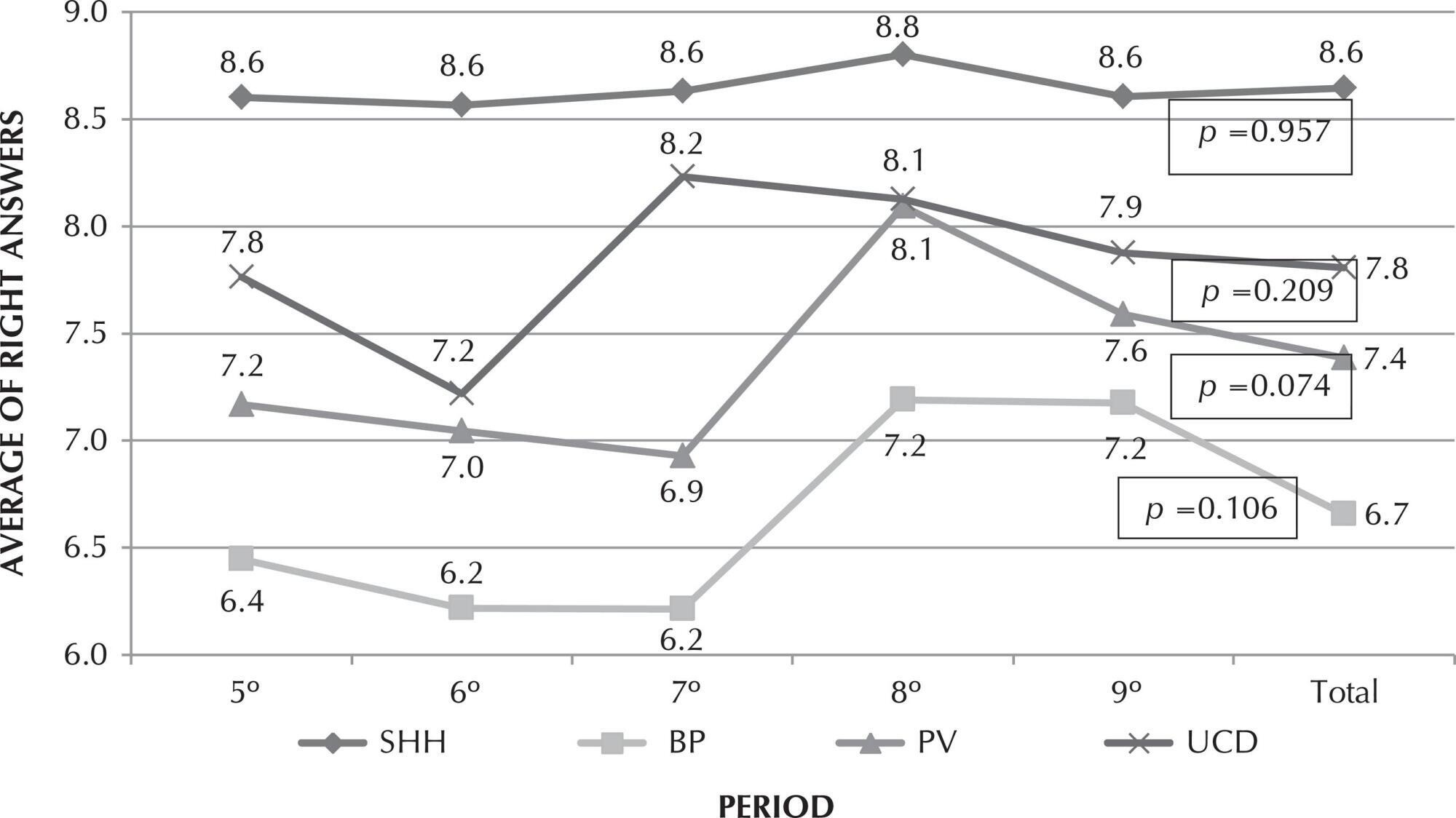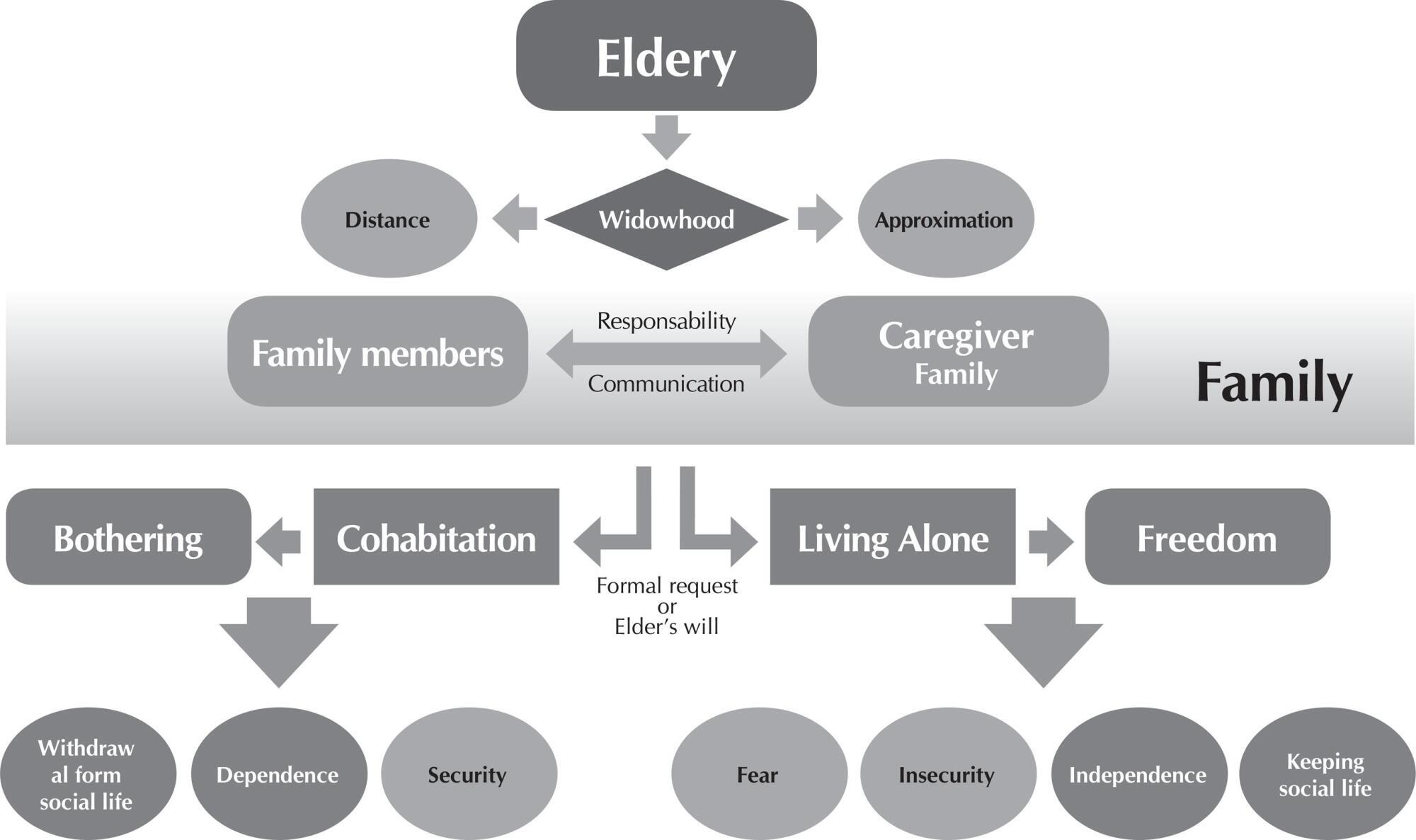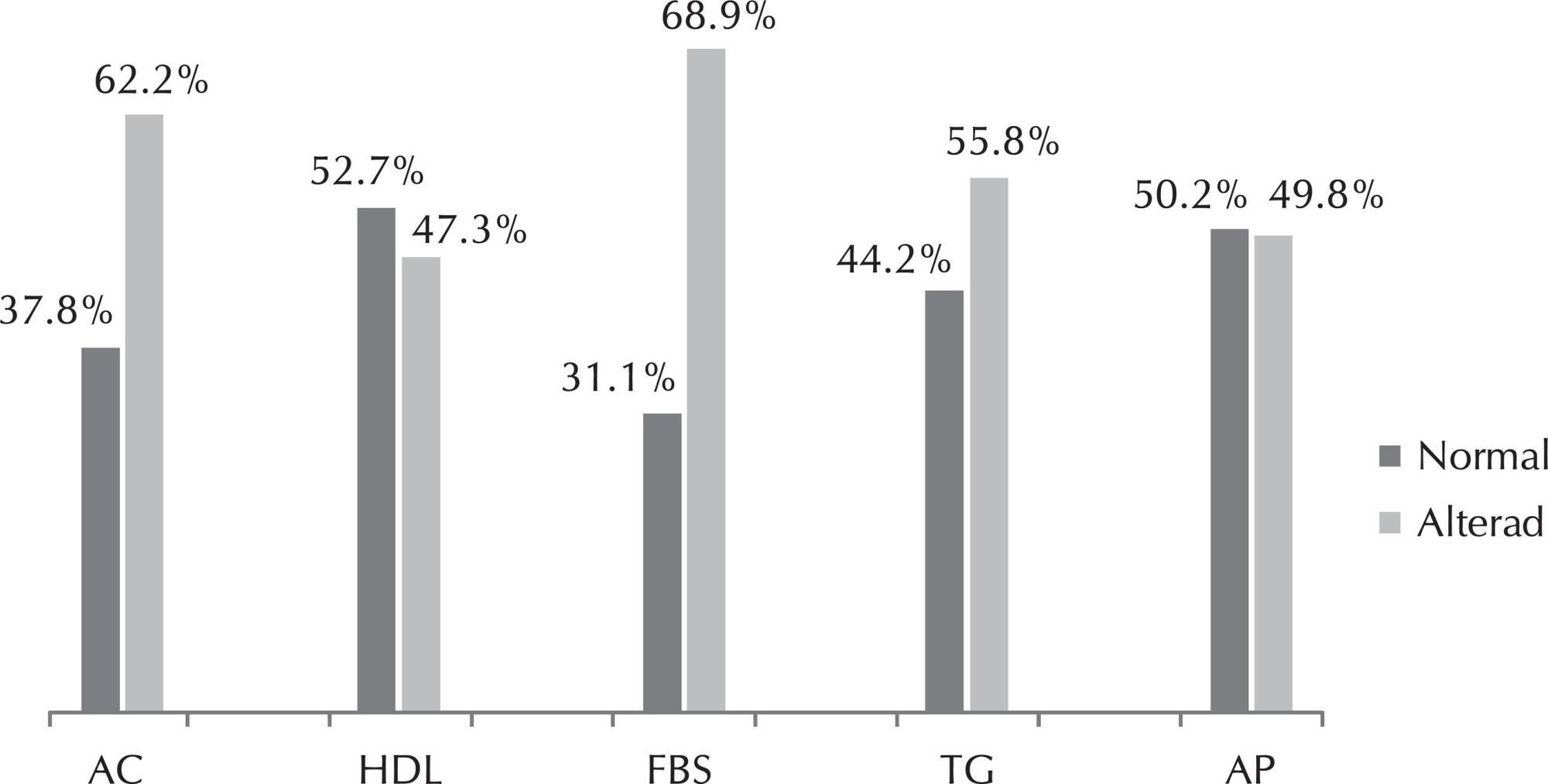-
REVIEW03-15-2024
Nursing care for parents who have experienced fetal demise: integrative review
Revista Brasileira de Enfermagem. 2024;77(1):e20220811
Abstract
REVIEWNursing care for parents who have experienced fetal demise: integrative review
Revista Brasileira de Enfermagem. 2024;77(1):e20220811
DOI 10.1590/0034-7167-2022-0811
Views0See moreABSTRACT
Objectives:
to identify scientific evidence regarding nursing care for parents who have experienced grief following fetal demise.
Methods:
an integrative review of original studies was conducted across six databases. The studies were classified according to the level of evidence.
Results:
the qualitative analysis of the nine studies comprising the sample involved thematic categories, exploring the impact of perinatal loss on families, inadequate communication by healthcare professionals, and the importance of a holistic approach in care. The role of the nurse is highlighted in making a positive contribution to the team, emphasizing participation in training and the provision of essential information.
Final Considerations:
grieving affects not only family dynamics but also the social environment, emphasizing the urgency of a more empathetic and comprehensive approach. Care should be holistic, going beyond technical nursing assistance, and addressing the biopsychosocial context of the parents.

-
ORIGINAL ARTICLE03-15-2024
Is there scientific relevance to the plot of films and documentaries about eating disorders?
Revista Brasileira de Enfermagem. 2024;77(1):e20220547
Abstract
ORIGINAL ARTICLEIs there scientific relevance to the plot of films and documentaries about eating disorders?
Revista Brasileira de Enfermagem. 2024;77(1):e20220547
DOI 10.1590/0034-7167-2022-0547
Views1See moreABSTRACT
Objectives:
to analyze films and documentaries about eating disorders from the last twenty years, identifying the way they approach the topic as well as their relevance for didactic use in teaching the health field.
Methods:
a descriptive study, whose data collection was carried out on the main streaming and video platforms, resulting in the survey of 60 media. Of these, only 25 had audio/subtitles in Portuguese (inclusion criteria). scientific relevance was analyzed considering psychopathological and epidemiological aspects of these disorders. A questionnaire about the plot, characters and descriptive data analysis were used.
Results:
most media were dramas about female teenagers who tried to conform to beauty stereotypes, whose symptoms portrayed converged with current medical diagnostic manuals.
Conclusions:
in practical terms, a classificatory list of 11 media was prepared that could be used as a teaching resource for teaching this topic in the health field.

-
ORIGINAL ARTICLE03-11-2024
Ethnically distinct populations and coping with violence against children in the COVID-19 pandemic
Revista Brasileira de Enfermagem. 2024;77:e20230350
Abstract
ORIGINAL ARTICLEEthnically distinct populations and coping with violence against children in the COVID-19 pandemic
Revista Brasileira de Enfermagem. 2024;77:e20230350
DOI 10.1590/0034-7167-2023-0350
Views0See moreABSTRACT
Objective:
To identify policies and programs adopted by a Brazilian municipality to address violence against children during the COVID-19 pandemic.
Method:
A qualitative documentary study. The study setting was the municipality of Ananindeua, Pará, Brazil. Data was collected from official websites between November 2021 and February 2022. Thematic content analysis was used with the support of webQDA software.
Results:
Three empirical categories emerged: a) Impacts of the COVID-19 pandemic on violence against children; b) Action strategies for tackling violence against children in the COVID-19 pandemic; c) Evaluation indicators and targets for action strategies for tackling violence against children.
Final considerations:
The documents revealed few direct mentions of children, especially traditional populations; they presented superficial and ineffective evaluations of the policies and programs adopted, using exclusively quantitative indicators.
-
ORIGINAL ARTICLE03-11-2024
Experiences of women with physical disabilities in labor and delivery assistance
Revista Brasileira de Enfermagem. 2024;77:e20230290
Abstract
ORIGINAL ARTICLEExperiences of women with physical disabilities in labor and delivery assistance
Revista Brasileira de Enfermagem. 2024;77:e20230290
DOI 10.1590/0034-7167-2023-0290
Views0ABSTRACT
Objective:
To understand the meaning attributed by women with physical disabilities to the health care received and expected during labor and delivery.
Methods:
Qualitative study, based on Social Network Theory, conducted through an online workshop in April 2022, with the participation of six women with physical disabilities. Data, collected through the focus group technique, underwent thematic content analysis with the assistance of the IRaMuTeQ tool.
Results:
Three thematic categories emerged: Challenges experienced during pregnancy; The experience within the maternity ward; and, The importance of social networks. The assistance provided by healthcare professionals sometimes differed between what was expected and what was received by women with physical disabilities during labor and delivery.
Final Considerations:
Experiences were predominantly negative, resulting from inappropriate professional conduct due to ableist attitudes. Support from members of social networks is crucial for preventing stressors.
Keywords:Disabled PersonsHealth PersonnelLabor, ObstetricParturitionStress Disorders, Post-TraumaticSee more
-
ORIGINAL ARTICLE03-11-2024
Use of an application on the measles vaccine for Warao indigenous refugees in Brazil
Revista Brasileira de Enfermagem. 2024;77:e20230253
Abstract
ORIGINAL ARTICLEUse of an application on the measles vaccine for Warao indigenous refugees in Brazil
Revista Brasileira de Enfermagem. 2024;77:e20230253
DOI 10.1590/0034-7167-2023-0253
Views0See moreABSTRACT
Objective:
To evaluate the need to develop an application with information about the measles vaccine for Warao indigenous people.
Methods:
This was a quantitative study conducted at the Espaço de Acolhimento Tapanã refugee shelter in the city of Belém, Pará, Brazil. The study sample was selected for convenience. Data were analyzed descriptively using Bioestat 5.0 software.
Results:
Twenty-one Warao indigenous individuals were interviewed. It was identified that 91% (n=20) had lost their vaccination card; 91% (n=20) stated they had lost their vaccination card more than three times, and 91% expressed interest in an application to store their vaccination information.
Conclusions:
The research provided important information for the development of a health application named WaraoMedI (Warao Measles Diversity Indigenous), as well as offered nursing professionals evidence about the challenges Warao indigenous refugees face in self-managing their vaccination information.

-
REVIEW03-11-2024
Continuing nursing education actions in the face of homophobia: an integrative review
Revista Brasileira de Enfermagem. 2024;77:e20230094
Abstract
REVIEWContinuing nursing education actions in the face of homophobia: an integrative review
Revista Brasileira de Enfermagem. 2024;77:e20230094
DOI 10.1590/0034-7167-2023-0094
Views0ABSTRACT
Objectives:
to analyze continuing nursing education actions in the scientific literature in the face of homophobia.
Methods:
an integrative literature review with structured search in June 2022 in eight databases, using the descriptors Nursing Education, Homophobia, Sexual and Gender Minorities. Final sample consisted of six primary studies.
Results:
continuing nursing education actions are supported by strategies such as use of teaching materials, lectures, case studies and focus groups, addressing content such as gender identity issues and affective-sexual orientation, health disparities and their relationship with homophobia in healthcare settings.
Final considerations:
carried out in various healthcare settings, continuing education actions proved to be successful in raising nurses’ awareness in facing homophobia in health services, however, their expansion is necessary to create health spaces that meet the specific needs of these people.
Keywords:Continuing EducationHomophobiaNursingSexual and Gender MinoritiesTraining of Human Resources in HealthSee more
-
EDITORIAL03-11-2024
O uso da ultrassonografia point-of-care na prática clínica do enfermeiro como alicerce para a segurança do paciente
Revista Brasileira de Enfermagem. 2024;77:e77suppl0201
Abstract
EDITORIALO uso da ultrassonografia point-of-care na prática clínica do enfermeiro como alicerce para a segurança do paciente
Revista Brasileira de Enfermagem. 2024;77:e77suppl0201
DOI 10.1590/0034-7167.202477suppl0201pt
Views0Recentemente, mais um caso de dano grave associado ao cuidado em saúde foi reportado pela mídia. Uma jovem grávida teve a mão e o punho amputados depois de dar à luz ao terceiro filho em um hospital do Rio de Janeiro(). Após o incidente ocasionado pelo acesso vascular, a mulher apresentou hemorragia e foi reinternada.Os […]See more -
EDITORIAL03-11-2024
The use of point-of-care ultrasound in nurses’ clinical practice as a foundation for patient safety
Revista Brasileira de Enfermagem. 2024;77:e77suppl0201
Abstract
EDITORIALThe use of point-of-care ultrasound in nurses’ clinical practice as a foundation for patient safety
Revista Brasileira de Enfermagem. 2024;77:e77suppl0201
DOI 10.1590/0034-7167.202477suppl0201
Views0Recently, another case of serious harm associated with healthcare was reported by the media. A young pregnant woman had her hand and wrist amputated after giving birth to her third child in a hospital in Rio de Janeiro(). After the incident caused by vascular access, the woman suffered hemorrhage and was readmitted.The harm caused to […]See more
-
ORIGINAL ARTICLE12-13-2024
Nurses’ experience regarding patient safety in mobile pre-hospital care
Revista Brasileira de Enfermagem. 2024;77(5):e20230529
Abstract
ORIGINAL ARTICLENurses’ experience regarding patient safety in mobile pre-hospital care
Revista Brasileira de Enfermagem. 2024;77(5):e20230529
DOI 10.1590/0034-7167-2023-0529
Views0See moreABSTRACT
Objectives:
to understand nurses’ experience regarding patient safety in mobile pre-hospital care.
Method:
a qualitative, exploratory and descriptive study, conducted with nurses active in mobile pre-hospital care services. Semi-structured interviews were conducted, audio-graved and submitted to Bardin’s content analysis.
Results:
from four thematic categories established, nurses reported the care and management skills necessary to work in this service. They demonstrated a commitment to ensuring safe care for patients, staff and spectators. They highlighted the actions taken to prevent and mitigate incidents. However, they based their experiences on practice protocols and individual actions, expressing the need to improve knowledge about patient safety.
Final Considerations:
mobile pre-hospital care nurses’ experience in relation to patient safety was limited, suggesting the need for training on the subject, alignment of work processes and implementation of strategies, aiming to guarantee safe care.
-
ORIGINAL ARTICLE12-13-2024
Repercussions of the pandemic on tuberculosis control actions from the perspective of health professionals
Revista Brasileira de Enfermagem. 2024;77(5):e20230477
Abstract
ORIGINAL ARTICLERepercussions of the pandemic on tuberculosis control actions from the perspective of health professionals
Revista Brasileira de Enfermagem. 2024;77(5):e20230477
DOI 10.1590/0034-7167-2023-0477
Views0See moreABSTRACT
Objectives:
to analyze the repercussions of the COVID-19 pandemic on tuberculosis control actions from the perspective of primary health care professionals.
Methods:
this descriptive study with a qualitative approach was conducted from November 2022 to April 2023, using semi-structured interviews with 11 key informant professionals from primary health care units in a Brazilian capital. Data were organized using Atlas.ti 22.0 software and subjected to thematic-categorical content analysis.
Results:
the pandemic scenario caused alterations in the work process, necessitating abrupt adaptations, and led to detrimental impacts on the health of professionals and tuberculosis control actions, which were reduced or discontinued.
Final Considerations:
there was evident unpreparedness and a lack of resources from various governmental levels and health services to handle the public health emergency situation without severe harm to the provision of essential services.
-
Training of Brazilian indigenous nurses: between human rights, valuing diversity and inclusion
Revista Brasileira de Enfermagem. 2024;77(5):e20230430
Abstract
Training of Brazilian indigenous nurses: between human rights, valuing diversity and inclusion
Revista Brasileira de Enfermagem. 2024;77(5):e20230430
DOI 10.1590/0034-7167-2023-0430
Views0See moreABSTRACT
Objectives:
to analyze the possibilities and potential of training indigenous nurses, given the Brazilian Health System (SUS), understanding the relationships between education and health.
Methods:
theoretical-reflective study, based on scientific literature, aligned with the experience, critical thinking of its authors and the Sustainable Development Goals in Brazil.
Results:
this text articulates three axes: Potential for including indigenous students in nursing training; Paths to achieving equity through inclusion and retention policies for indigenous students at different levels; and Implications of this for the SUS and global health.
Final Considerations:
indigenous students, beneficiaries of affirmative actions, face challenges of inclusion and retention in public universities that directly impact their academic training. Added to this are the difficulties identified in basic education, professor training and implementation of permanence policies, with consequences for services and training at other levels.
-
ORIGINAL ARTICLE12-13-2024
Interobserver agreement in Reception and Risk Stratification in Obstetrics implementation
Revista Brasileira de Enfermagem. 2024;77(5):e20230361
Abstract
ORIGINAL ARTICLEInterobserver agreement in Reception and Risk Stratification in Obstetrics implementation
Revista Brasileira de Enfermagem. 2024;77(5):e20230361
DOI 10.1590/0034-7167-2023-0361
Views0See moreABSTRACT
Objectives:
to analyze interobserver agreement in the Reception and Risk Stratification in Obstetrics protocol implementation.
Methods:
a cross-sectional study carried out during Reception and Risk Stratification in Obstetrics implementation, conducted in a tertiary hospital in southern Brazil with 891 participants in January 2020. Descriptive and interobserver agreement analysis was carried out using the Kappa coefficient in the risk stratification assigned by the triage nurse and reviewed by the researcher.
Results:
around half of the calls (55.6%) were stratified as not very urgent (green), followed by urgent (yellow) (31.8%), very urgent (orange) (9.3%), not urgent (blue) (3.4%) and no emerging stratification (red). Agreement analysis of revised stratification found Kappa values of 0.20 (blue), 0.54 (green), 0.77 (yellow) and 0.80 (orange).
Conclusions:
most appointments were non-urgent. The agreement analysis between the revised and assigned risk stratification revealed greater interobserver agreement as the priority level increased.
-
ORIGINAL ARTICLE12-13-2024
Adaptation and implementation of a Nursing care protocol for children in the Amazon Region
Revista Brasileira de Enfermagem. 2024;77(5):e20230245
Abstract
ORIGINAL ARTICLEAdaptation and implementation of a Nursing care protocol for children in the Amazon Region
Revista Brasileira de Enfermagem. 2024;77(5):e20230245
DOI 10.1590/0034-7167-2023-0245
Views0See moreABSTRACT
Objectives:
to describe the process of implementing an adapted protocol for pediatric nursing care in a health unit located in a municipality in the Amazon Region.
Methods:
methodological research conducted in a basic health unit with four family health teams in the state of Rondônia, involving seven nursing professionals. Data collection occurred between October 2020 and April 2022, following the research phases: situational diagnosis, exploratory phase, protocol definition, implementation, and evaluation.
Results:
the outcome was the adaptation and implementation of a nursing care protocol for children.
Final Considerations:
the adaptation and implementation process can be an effective approach to improving care, strengthening nursing as a profession with a solid foundation in scientific and clinical evidence. This facilitates early problem identification and appropriate guidance, leading to better health outcomes for children.
-
ORIGINAL ARTICLE12-13-2024
Nurses’ experiences in caring for people with mental health problems hospitalized due to clinical comorbidities
Revista Brasileira de Enfermagem. 2024;77(5):e20230136
Abstract
ORIGINAL ARTICLENurses’ experiences in caring for people with mental health problems hospitalized due to clinical comorbidities
Revista Brasileira de Enfermagem. 2024;77(5):e20230136
DOI 10.1590/0034-7167-2023-0136
Views0See moreABSTRACT
Objectives:
to understand nurses’ experiences in caring for people with mental health problems hospitalized due to clinical comorbidities in non-psychiatric Inpatient Units.
Methods:
qualitative study, guided by Alfred Schutz’s social phenomenology. Sixteen phenomenological interviews were conducted. The content was analyzed and discussed based on the literature, through the composition of three categories of analysis.
Results:
three categories emerged in the study: Challenges in care faced by nurses; Fragmented care action; and Ideal care. The disarticulation of the clinic was revealed, as described by nurses, showing care as an action far removed from the comprehensiveness of a person. Nurses’ performance is guided predominantly by biomedical reference, disregarding appreciation of subjectivity.
Final Considerations:
it was observed that nurses attribute the responsibility for patient care to factors external to their life-world, when, in fact, these aspects should be components that help them in comprehensive care construction.
-
REVIEW11-29-2024
Assessment of knowledge in oncology about care for transgender people: a scoping review
Revista Brasileira de Enfermagem. 2024;77:e20230532
Abstract
REVIEWAssessment of knowledge in oncology about care for transgender people: a scoping review
Revista Brasileira de Enfermagem. 2024;77:e20230532
DOI 10.1590/0034-7167-2023-0532
Views0ABSTRACT
Objective:
to identify evidence available in the literature on instruments and methodologies used to assess healthcare professionals’ knowledge about cancer care for the transgender population.
Methods:
a scoping review was conducted in seven databases, including studies that answered the question: what is the healthcare professionals’ level of knowledge about cancer care for the transgender population?
Results:
forty-one articles were selected that dealt specifically with healthcare professionals’knowledge in relation to care for the LGBTQIAPN+ population, especially the transgender population. Eighteen studies assessed patients’ perceptions of professionals’knowledge, whereas other studies used their own assessment tools, considering the global context of LGBTQIAPN+ health.
Conclusions:
there is no tested and validated instrument that assesses the knowledge about the transgender population’s oncological health, highlighting the need to construct and validate an instrument focused on this population’s needs.
Keywords:Health Services for Transgender PeopleNeoplasmsOncologyProfessional TrainingTransgender PeopleSee more
-
RESEARCH01-01-2017
Impact of home visits on the functional capacity of patients with venous ulcers
Revista Brasileira de Enfermagem. 2017;70(2):287-293
Abstract
RESEARCHImpact of home visits on the functional capacity of patients with venous ulcers
Revista Brasileira de Enfermagem. 2017;70(2):287-293
DOI 10.1590/0034-7167-2016-0291
Views0See moreABSTRACT
Objective:
to compare the impact of home visits, before and after instructions, on the functional capacity of adult and elderly patients with venous ulcers, by means of the KATZ-EIAVD Scale.
Method:
experimental, clinical, randomized, non-blind and controlled study, developed with 32 patients (case and control groups). The research settings were the Wound Care Clinic of the University Hospital Antonio Pedro, and the homes of patients assisted in this clinic. Data collection took place from February to June 2014, by means of a health unit evaluation tool, the KATZ-EIAVD Scale, and a script of instructions to be given to the research subjects that had received a home visit.
Results:
the studied population present excellent independence for activities of daily living, with no significant variation among them.
Conclusion:
the studied groups have functional capacity with similar progress.
-
RESEARCH01-01-2017
The elderly recognizing themselves as vulnerable to falls in the concreteness of the femoral fracture
Revista Brasileira de Enfermagem. 2017;70(2):279-286
Abstract
RESEARCHThe elderly recognizing themselves as vulnerable to falls in the concreteness of the femoral fracture
Revista Brasileira de Enfermagem. 2017;70(2):279-286
DOI 10.1590/0034-7167-2016-0392
Views0See moreABSTRACT
Objectives:
understand the experience of the elderly with falls followed by femoral fracture and elaborate theoretical model of this process of lived experience.
Method:
qualitative research with theoretical saturation through analysis of the ninth nondirected interview of elderly who underwent such experience. Interviews were recorded, transcribed, and analyzed according to Grounded Theory.
Results:
three categories emerged (sub-processes): evaluating signs and symptoms of fracture after the fall; feeling sad and insecure with the new condition; and finding oneself susceptible to fractures. From realignment of these categories (sub-processes) we could abstract the central category (process), recognizing oneself as vulnerable to falls in the concreteness of the fracture.
Conclusion:
the theoretical model considering the Symbolic Interactionism signals the implementation of continued program for fall prevention, with teaching strategies that encourage the elderly to reflect on the concreteness of contexts in which there is risk of occurring injury to their health.

-
RESEARCH01-01-2017
Self-esteem and health-related quality of life in ostomized patients
Revista Brasileira de Enfermagem. 2017;70(2):271-278
Abstract
RESEARCHSelf-esteem and health-related quality of life in ostomized patients
Revista Brasileira de Enfermagem. 2017;70(2):271-278
DOI 10.1590/0034-7167-2016-0161
Views0See moreABSTRACT
Objective:
to assess self-esteem (SE) and health-related quality of life (HRQoL) in ostomized patients due to colorectal cancer.
Method:
cross sectional research with a quantitative approach. Three instruments were used for data collection: one instrument containing sociodemographic and clinical data, Rosenberg’s Self-Esteem Scale, and the European Organization for Research and Treatment of Cancer Quality of Life Questionnaire.
Results:
SE and HRQoL were considered satisfactory. Significant statistical difference was found in the social function domain and marital status, ostomy duration, location, and time; global health scale and ostomy type; cognitive function and pain in the ostomy site. There was a correlation between self-esteem and all the functional scales and the global health scale.
Conclusion:
knowing SE and HRQoL levels, in addition to the variables that influence them, supports ostomized patients’ care planning, rehabilitation, and social autonomy.
-
RESEARCH01-01-2017
Quality of life of patients who undergone myocardial revascularization surgery
Revista Brasileira de Enfermagem. 2017;70(2):257-264
Abstract
RESEARCHQuality of life of patients who undergone myocardial revascularization surgery
Revista Brasileira de Enfermagem. 2017;70(2):257-264
DOI 10.1590/0034-7167-2016-0201
Views0See moreABSTRACT
Objective:
to evaluate the quality of life of patients who underwent revascularization surgery.
Method:
a descriptive, cross sectional study, with quantitative approach carried out with 75 patients. The questionnaire WHOQOL-Bref was used to evaluate the quality of life (QOL).
Results:
patients’ QOL evaluation presented a moderate result, with need of improvement of all domains. Low income patients had the worst evaluation of QOL in the domain environment (p=0,021), and the ones from Recife/metropolitan area, in the domain social relationship (p=0,021). Smoker (p=0,047), diabetic (p=0,002) and alcohol consumption (p=0,035) patients presented the worst evaluation of the physical domain. Renal patients presented the worst evaluation of QOL in the physical (P=0,037), psychological (p=0,008), social relationship (p=0,006) domains and total score (p=0,009).
Conclusion:
the improvement of QOL depends on the individual’s process of behavioral change and the participation of health professionals is essential to formulate strategies to approach these patients, especially concerning health education.
-
RESEARCH01-01-2017
Semiotics and semiology of Nursing: evaluation of undergraduate students’ knowledge on procedures
Revista Brasileira de Enfermagem. 2017;70(2):249-256
Abstract
RESEARCHSemiotics and semiology of Nursing: evaluation of undergraduate students’ knowledge on procedures
Revista Brasileira de Enfermagem. 2017;70(2):249-256
DOI 10.1590/0034-7167-2016-0417
Views0ABSTRACT
Objective:
to assess the knowledge of scholars on Nursing regarding simple hands hygiene (SHH), blood pressure measurement (BP), peripheral venipuncture (PV) with venous catheter and male urethral catheterization delay (UCD) procedures.
Method:
quantitative study carried out between February and May 2014, with 186 undergraduate Nursing students from 5th to 9th period of a public university of Rio Grande do Norte, with application of four questionnaires. One carried out descriptive and analytic analysis.
Results:
the students presented low average percentage of right answers, especially in blood pressure measurement (55.5%); SHH’s average was higher than 70%. The average of correct answers was the highest in SHH (8.6), followed by UCD (7.8), PV (7.4) and BP (6.7). The questions regarding the topic “concepts” showed less correct answers when comparing it to the topic “technique steps”.
Conclusion:
it is necessary to establish knowledge monitoring strategies, in order to stimulate the constant improvement.
Keywords:Education in NursingKnowledgeNursing CareResearch in Nursing EvaluationUndergraduate Nursing StudentsSee more
-
RESEARCH01-01-2017
Multi-professional team’s perception of nurses’ competences in liver transplantations
Revista Brasileira de Enfermagem. 2017;70(2):242-248
Abstract
RESEARCHMulti-professional team’s perception of nurses’ competences in liver transplantations
Revista Brasileira de Enfermagem. 2017;70(2):242-248
DOI 10.1590/0034-7167-2016-0223
Views0See moreABSTRACT
Objective
describe the multi-professional team’s perception of nurses’ competences in liver transplantation programs.
Method:
descriptive study with a qualitative approach. Data were collected through a questionnaire. Participants were 12 professionals of the liver transplantation team of a reference hospital. For result interpretation, the thematic analysis technique was employed.
Results:
the professionals assessed the competences employed by nurses as proactive, autonomous, creative, humanized, capable of teamwork, decision-making and conflict management.
Conclusion:
this study made it possible to demonstrate that members of the multi-professional team perceived nurses as professionals capable of coordinating and integrating the skills “knowing, doing, being and co-existing”, enabling quality care for candidates and receivers of liver transplants, as well as for their families and/or caregivers in all perioperative phases.
-
RESEARCH01-01-2017
The family in face of the elderly’s reality of living alone
Revista Brasileira de Enfermagem. 2017;70(2):235-241
Abstract
RESEARCHThe family in face of the elderly’s reality of living alone
Revista Brasileira de Enfermagem. 2017;70(2):235-241
DOI 10.1590/0034-7167-2016-0398
Views0See moreABSTRACT
Objective:
to understand the family dynamics in face of the reality of the elderly living alone.
Method:
study of qualitative approach with theoretical reference of symbolic interactionism that involved interviews with families. Data were analyzed by thematic analysis.
Results:
six families participated in the study. The discourse analysis originated the following categories: The family respecting their decision making; The family organizing itself to the process of living alone after the age of 80 years; The family experiencing the freedom of living alone.
Conclusion:
in this study, it was possible to identify the facilitation of the possibility of living alone with preparation and agreements between the family during the family life cycle, leading to the feeling of freedom and quality of life of all members. Nursing, as a science responsible for elaborating care strategies, should work together with families to assist in the planning of care plans based on the individual social reality of the family.

Search
Search in:
Nuvem de Tags
Aged (144) Atenção Primária à Saúde (239) COVID-19 (104) Cuidados de Enfermagem (269) Educação em Enfermagem (151) Educação em Saúde (139) Enfermagem (930) Estudos de Validação (131) Health Education (144) Idoso (208) Mental Health (149) Nursing (987) Nursing Care (306) Patient Safety (151) Primary Health Care (284) Qualidade de Vida (104) Quality of Life (106) Saúde Mental (145) Segurança do Paciente (150) Validation Studies (108)




